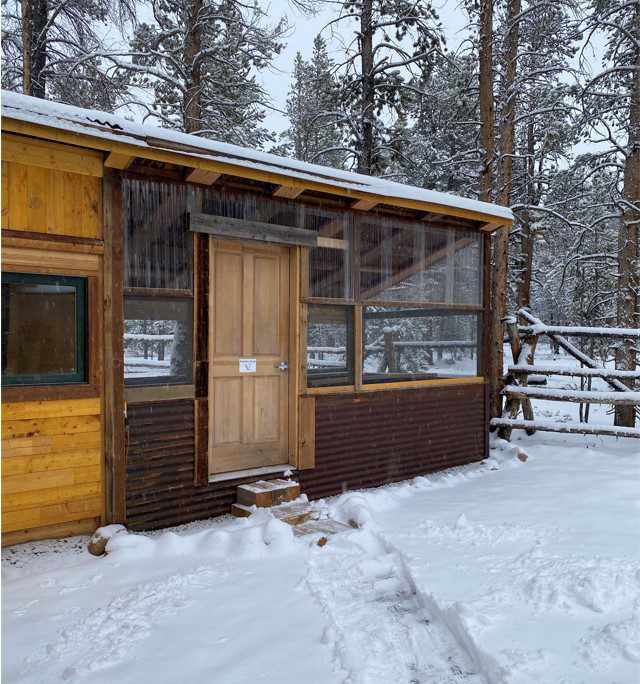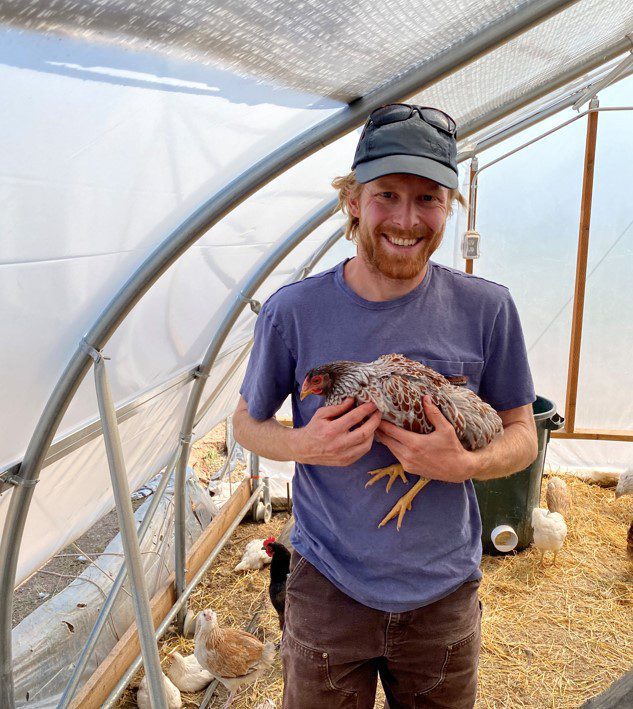BWOK! BWOK! BWOK!

It is 6 a.m., the sun is rising over the HMI campus, and the early morning peace has been shattered by the clucking of 20 brightly-feathered chickens, the newest and noisiest residents of Grey Jay Way. The coop is abuzz with squawks and fluttering wings as the flock, which includes stately Russian Orloffs, easygoing Wyandottes, and fluffy, fivetoed Salmon Faverolles, prepares for a busy day of egg laying and strutting around their coop. It has been just over a year since the hens arrived on campus and HMI residents decided to form a chicken coop co-op. Originally hatched as a pandemic project, the co-op has helped to create a sense of community and shared responsibility among residents; every household is a member of the coop and residents have weekly chicken tending, coop cleaning, and egg delivery duties. The hens have even managed to build a fledgling Instagram following since their arrival.
Coop construction began in earnest during the summer of 2020. Led by Chicken Coop Chief Operating Officer Dirk Rasmussen (partner of Director of Communication and Engagement Barrett Donovan) and Director of Summer Programs and Wilderness Coordinator Dave Clark-Barol, the coop incorporates many remnants of HMI’s history. The building, comprised of a heated sleeping roost as well as an indoor and outdoor run, is made of more than 90% reclaimed or salvaged materials ranging from repurposed cabin doors, Tyvek expedition ground cloths, and original metal roofing from the Barnes building.

Once the coop was built, Dirk and Barrett traveled to Sunshine Mesa Farm in Hotchkiss, CO to fetch the flock and egg-laying began in earnest. On good days, the hens produce about 8-10 eggs in gorgeous shades of light brown, green, and blue. Most of these farm fresh eggs end up scrambled or fried, delicious breakfast treats for residents. During the winter months, production goes down, but the hens are still delightful companions. When asked about the coop, Dirk said: “Spending time with the hens is very meditative. Observing individual personalities and the social dynamics of the flock is fascinating. It’s deeply satisfying that we tend a flock of birds who are descendants of dinosaurs. Eggs are a bonus.”